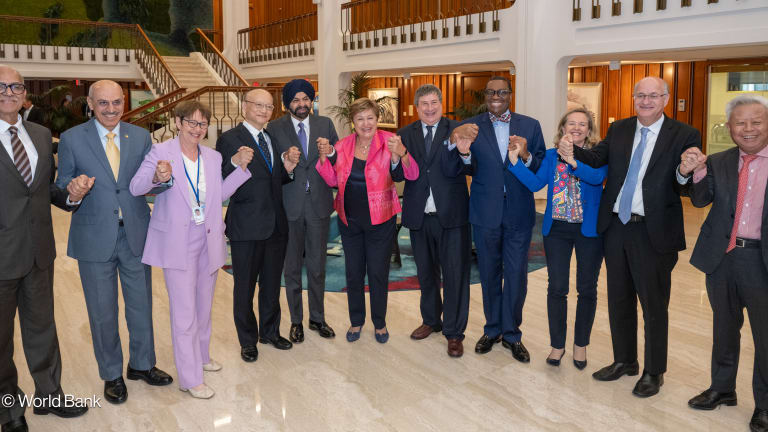
Many developing countries, including those that have become middle-income countries, have concrete and successful development programs built upon workable, effective policies. Sharing their experiences and lessons learned with others is of tremendous benefit. We must use their best practices to address fellow developing countries’ concerns.
Plenty of examples already show that knowledge sharing is a crucial part of development cooperation. Indonesia’s own experience highlights the importance of developing a knowledge sharing mechanism to foster such exchanges. For example, the Program Keluarga Harapan (PKH, or Family Hope Program in English) is based on Brazil’s Bolsa Familia experience of conditional cash transfers to individual households. Learning best practices from other countries’ similar programs, adjusting them to the Indonesian context and further modification has helped create this “best-fit” social protection program, first started by the World Bank. The PKH pilot, covering around 500,000 households in 2007, has now been scaled up to become a national program funded by the national budget covering 3.2 million households in 2014.
Knowledge sharing also helped some countries to assist Haiti following its devastating 2010 earthquake. Facilitated by the World Bank, Indonesia shared our experience of rebuilding following the 2004 tsunami, focusing on planning and implementation tools for community-based housing reconstruction. Brazil and Korea also shared knowledge and experience through South-South exchange to rebuild Haiti’s garment industry by improving policies, attracting investment and integrating in the international supply chain.
One of the most important components of knowledge sharing is the further development of knowledge hubs. These can help seekers and providers of development solutions to come together around specific issues.
Creating knowledge sharing networks is key to enriching conversations and to connecting policymakers, practitioners and other stakeholders — providing opportunities to interact and engage.
Four success factors for effective knowledge sharing of development solutions are:
Identifying specific topics or thematic issues around which to center knowledge sharing in the post-2015 development agenda.
Using existing platforms for brokering mechanisms.
Using country-led knowledge hub infrastructure for successful development results.
Optimising existing funding activities and new financial resources — including from the private sector, foundations and triangular cooperation partners.
Indonesia is collaborating with the World Bank, Korea, the United Nations Development Program and others to lead discussions on knowledge sharing. We are also working with Mexico to look at this important topic along with South-South and triangular cooperation. This way, common elements of successful knowledge sharing initiatives can be scaled up to meet knowledge demands post-2015. Such discussions will include the showcasing thematic aspects of knowledge sharing, the policy and institutional framework, and innovative practices leading from effective knowledge sharing networking.
Indonesia will strengthen country-led knowledge hubs and promote knowledge sharing among government institutions in order to improve our national development policy and contribute to international development cooperation. We have identified and inserted the importance of knowledge sharing in our government medium-term development plan for 2015-2019. We will encourage systems that enable learning among Indonesian regional governments as well as among line ministries on development programs. We will also share these experiences with international stakeholders.
It is important to support knowledge sharing around specific solutions rather than simply providing technical assistance. Such work can be driven by comprehensive partnership among different knowledge providers. This requires the proactive involvement of various development actors such as national governments, parliament, private sector, philanthropic organizations, civil society and others. Besides that, existing hubs developed by international organizations such as UNDP and the World Bank, as well as the G-20 knowledge platform areas, should be further promoted. Some have already become significant knowledge brokers. For example, Collaboration for Development, or C4D, hosted by the World Bank, has provided several secure social development platforms where members can share knowledge and gain inputs for their work through e-discussion, webinars and other means.
High-level political support is also crucial. Effective knowledge sharing will be one priority of the Global Partnership’s first high-level meeting in Mexico in April 2014. This will be an opportunity for knowledge sharing champions to work together towards:
Specific principles for effective knowledge sharing.
Improved capacity for country-level information exchange.
Stronger support for exchange between local institutions.
The Global Partnership can also help move technical assistance beyond the traditional provider-recipient model towards one where partners engage as equals, leading to greater development effectiveness. Meanwhile, knowledge exchange should not be limited to South-South cooperation, but can also be between all kinds of partners from both North and South.
Join the Devex community and access more in-depth analysis, breaking news and business advice — and a host of other services — on international development, humanitarian aid and global health.








